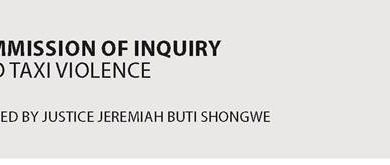Reviewing your insurance during times of uncertainty
Covid-19 and the ongoing lockdown has had many intended and unintended consequences for South Africans. Unfortunately, it has had a negative effect on the economy and more directly on consumers’ financial situations.
Given this impact, many people are examining their spending patterns and personal budgets. Some people may well be considering cancelling their insurance as is often the case when consumers feel the financial pinch.
“We understand that many South Africans are under financial pressure because of the lockdown and it is perfectly rational to cut down on unnecessary expenditure in the current climate. However, cancelling your insurance may not be the best way of doing this. It may have far-reaching consequences and could lead to huge expenses in the long run. In these unprecedented times, being insured protects you from potential financial ruin,” says Mr. Louis Hay from Standard Bank Insurance.
There are several ways that cancelling your insurance could impact you negatively.
Firstly, if something were to happen and you were not covered, the cost of accident related repairs to a vehicle or home, or to replace a stolen item could be astronomical in comparison to the monthly premiums you have been paying and may put you in a worse-off position than having paid your insurance premiums.
If you own a car, cancelling your insurance could be a breach of your financing agreement with your bank.
Finally, you could be faced with higher premiums when you are able to take out insurance again. This could be linked to your risk evaluation or lifestyle changes.
“By cancelling your insurance, you are placing yourself in a vulnerable position should anything happen to you, your possessions, your home or your vehicle. No insurance means no protection in the event of a fire, storm damage, an accident or theft,” says Mr Hay. “If you are facing financial challenges you should contact your insurer about the options available to remain covered. This could include restructuring your cover, payment holidays or cashback offerings.”
Restructuring your policy could lead to savings. For example, if are you working from home you should consider stipulating this on your policy and changing your parking to home only. Speak to your insurer about doing a client needs analysis, which is an assessment of your assets, business, lifestyle, and family considerations. Also ask about a review of your excesses on your short-term insurance. You could also downscale coverage to only your most important assets to save on your premiums.
You might have moved to a smaller home, sold off a car, or have fewer items that need to be covered by your insurance. Informing your insurer about these changes could mean an adjustment in your coverage so that it meets your lifestyle needs.
Often people are over insured when it comes to things such as electronic goods which have depreciated in value over time. Over insurance refers to when the coverage you have taken out exceeds the actual value of the asset you have insured.
“Reviewing your policy and affordability with your current insurer is a much wiser approach than simply cancelling your insurance knowing that it will provide you with the peace of mind that you are covered in case of an accident, a fire, storm damage, burglary, or theft. It’s a small price to pay for providing a great deal of comfort and protection in these uncertain times,” says Mr. Hay.
Ends
Standard Insurance Limited (“SIL”) is a short-term insurance company (Reg. No. 1993/007593/06). SIL is an authorised financial services provider FSP 33348 and is a Group company of The Standard Bank of South Africa Limited (Reg. No. 1962/000738/06), an authorised financial services and registered credit provider (NCRCP15).




